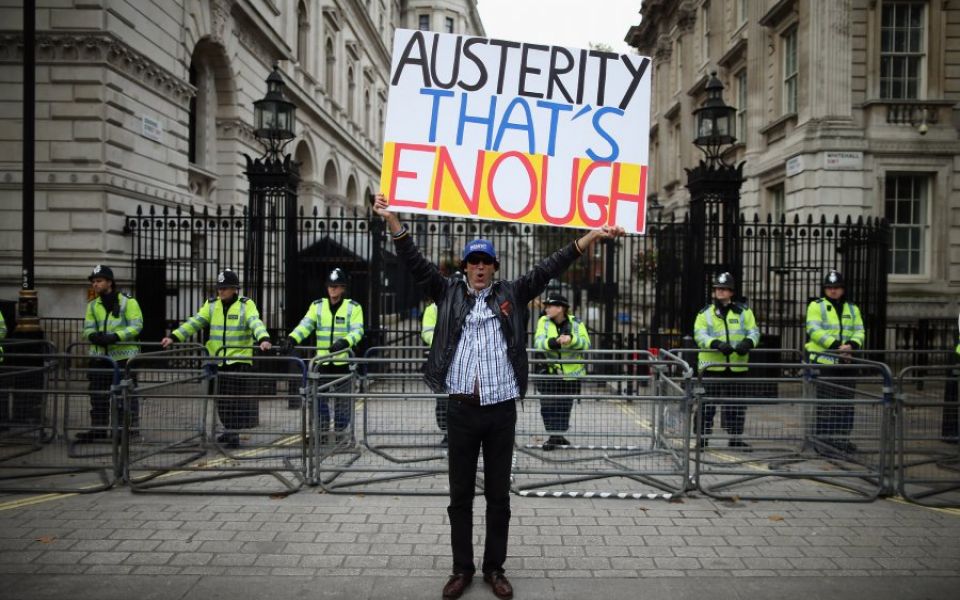The end of austerity the Prime Minister has promised would costs £20bn, says Institute of Fiscal Studies

The end of austerity the Prime Minister signalled in yesterday’s conference party speech could cost £20bn, according to the Institute for Fiscal Studies.
Read more: Theresa May declares 'austerity is over' in Conservative conference speech
Theresa May ended the Conservative Party Conference yesterday on a high, declaring the end of austerity is in sight as UK public services should get a boost after Brexit.
It would signal an end to an almost decade-long squeeze on public services, with May saying it would be a consequence of the “hard work” of the country in slashing debt and getting the economy back on track.
May told delegates yesterday that “after a decade of austerity, people need to know that their hard work has paid off”.
“There must be no return to the uncontrolled borrowing of the past,” she added. “But the British people need to know that the end is in sight. Because you made sacrifices, there are better days ahead.”
She vowed that when the Tories have “secured a good Brexit deal”, debt will go down while support for public services rises.
However, the Institute for Fiscal Studies said today that such a move would require the Prime Minister to find around £20bn by 2022 to fund a programme of reinvestment in public services.
"I don't know what she means by the end of austerity but it won't look like it, of course, if she doesn't find money for significant pay rises across the public sector,” director Paul Johnson told Radio 4’s Today programme.
"But if you look at the plans the government has got, it is increasing spending a lot on the health service and it’s got plans to increase spending on defence.
"If the rest of the public sector is to avoid austerity – at the very minimum if cuts stop from now on – that is going to require the government to find an extra £20bn or so by the end of this parliament and even that won't feel particularly generous but it will mean of course £20bn more on the deficit than is currently being planned."
The UK economy grew by 0.5 per cent in the second half of this year, marking the weakest six-monthly growth in seven years. The deficit recently fell to its lowest point since 2002, with public borrowing standing at £17.8bn for the year to August. However, August itself saw public borrowing hit £6.8bn, doubling economists' estimates.
Read more: Business groups react to Theresa May’s conference speech
Fiona Cincotta, senior market analyst at City Index, said: “Up until now the Conservative party has been identified with spending cuts and tax rises, but the Prime Minister [has] declared that debt as a share of the economy will be going down, with more support for public services and no return ‘to the uncontrolled borrowing of the past’.”